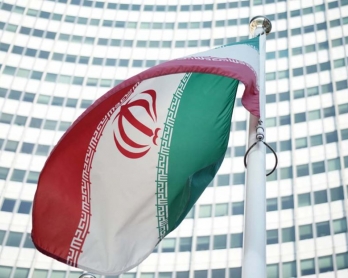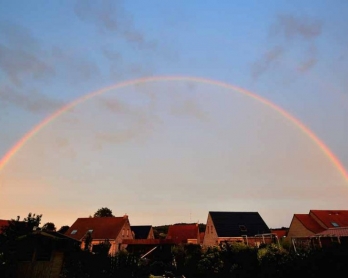Saving the world in 48 hours
Istanbul -- For connoisseurs of international summitry, it’s been high season recently in Turkey. We enjoyed a G20 summit featuring Barack Obama, a Islamic summit starring the Saudi monarch and last week in Istanbul the first ever World Humanitarian Summit. For each event, the routine for the media in our security-conscious times is familiar -- get accredited well ahead of time, circumnavigate a vast maze of metal police barriers and metal detectors to get anywhere near the venue and then rush between interviews and press conferences where everything seems to be happening at once. And it’s fair to say that summits have bred a degree of scepticism amongst most reporters, wearily used to seeing leaders arriving with great fanfare but then disappearing before the end and final communiques bringing little more than expressions of hope.
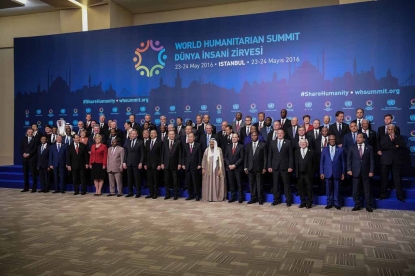 (AFP / Ozan Kose)
(AFP / Ozan Kose)And my scepticism ahead of the World Humanitarian Summit in Istanbul was perhaps even greater than usual. The sheer ambition of the event -- to transform the world’s humanitarian system and get more aid more efficiently to the worst off -- seemed at odds with what could be achieved in any two day meeting.
In the near utopian language of UN Secretary General Ban Ki-moon, the aim was no less than to forge “a different future”. Things had already got off to a tricky start with most key world leaders not showing up, something even the mild-mannered Ban said had left him “a bit disappointed”.
I sat myself in the inevitable press centre, saw bow tied-waiters dishing out tea, coffee and food with impeccable Turkish politeness to the assembled hungry hacks, and wondered how this could be reconciled with helping the needs of the world’s 60 million displaced people or 130 million in need of aid. It was not like the problems were particularly far away -- take a few paces outside the labyrinthine conference centre venue, turn left and delegates could find in Taksim Square refugees begging or selling low value goods in the hope of making ends meet.
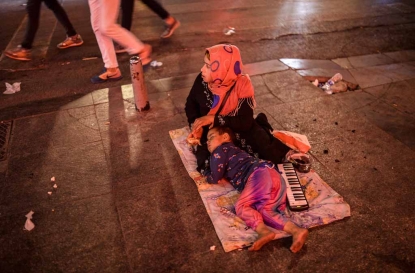 Syrian refugees in Taksim in May, 2015. (AFP / Bulent Kilic)
Syrian refugees in Taksim in May, 2015. (AFP / Bulent Kilic)Just a couple of the at least 2.7 million Syrians who took refuge in this country alone, every one a life turned upside down with expectations of the future transformed.
It was not as if there was nothing going on with sometimes a dozen panel events proceeding simultaneously. A helpful six screen projection in the press centre allowed the keen to follow as much as they could. Suddenly there was the imposing frame of James Bond star Daniel Craig, an impassioned UN advocate for demining.
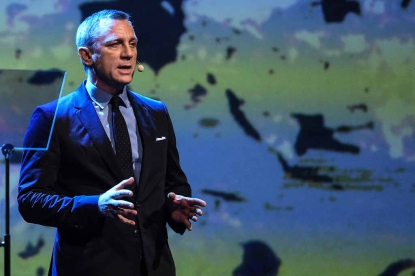 Daniel Craig at the Istanbul summit. (AFP / Ozan Kose)
Daniel Craig at the Istanbul summit. (AFP / Ozan Kose)And there was Sean Penn, keeping a low media profile after his film was mauled in Cannes. On the screen below was UN education envoy Gordon Brown, once UK prime minister. And on the screen next door International Rescue Committee chief David Miliband, once seen as a potential UK prime minister. UN officials would announce the times of news conference, cheerfully offering an “escort” to be taken there.
A huge amount of talking was done and it was interesting to watch harmony emerging on key issues. There is something wrong with the current aid system. Much more needs to be done to promote development and sustain communities before conflict erupts to prevent crises. Aid groups need to cut their bureaucracies, stop competing against each other. Government and other donors should not burden them with excessive reporting requirements. Local actors need to be empowered and might stand a better chance on the ground than bigger groups. Violations of humanitarian law such as attacks on schools and hospitals should be properly punished.
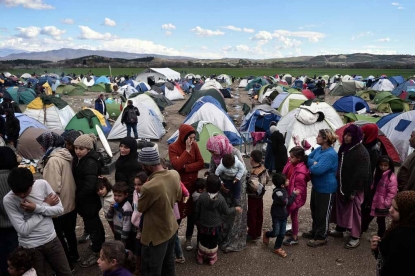 Refugees queue for food at a makeshift camp near the Greek village of Idomeni at the Greek-Macedonian border, on March 4, 2016. (AFP / Louisa Gouliamaki)
Refugees queue for food at a makeshift camp near the Greek village of Idomeni at the Greek-Macedonian border, on March 4, 2016. (AFP / Louisa Gouliamaki)The diagnosis was made more clearly than ever but one thing was clearly missing -- political commitment. Politicians were going to need a “kick in the butt”, one European official cheerfully told me, if the ideas were going to become reality. Or as Norwegian Refugee Council chief Jan Egeland put it: “It’s one thing to discuss in Istanbul in a nice venue like this. It’s another thing to get armed men to change their behaviour.”
Rob Williams, chief executive of War Child which works to protect and support children in conflict zones, told me the gathering was “amazing and unprecedented” but had achieved a “makeover” rather than the needed transformative change. “Would have been nice to have had more heads of state here,” he said laconically.
But while cynicism is one weapon in a journalist’s arsenal it can’t be the only one. One of the inspiring aspects of the summit was to be surrounded by literally thousands of people whose professional lives and beyond are devoted to making things better for others. And sometimes, the connection between the event and the beneficiaries could be made.
During a quiet moment, I popped down to the exhibition space to see a friend working for a small local NGO, Small Projects Istanbul, which works with Syrian refugees. It had helped Syrian refugee women make over 8,000 tote bags -- the usual summit giveaway -- for participants with their own personal stories printed on the back. “Thank you for using this bag as it has helped my family. Zeina, 46, a loving Syrian mother,” read one printed inscription. A dozen of the women, all duly badged and accredited were there, overjoyed to see their stories making such a visible impact. They got together by their stall and began to sing in Arabic. A song of home. A song of hope.
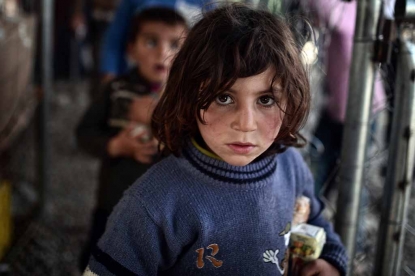 Children (AFP / Louisa Gouliamaki)
Children (AFP / Louisa Gouliamaki)



